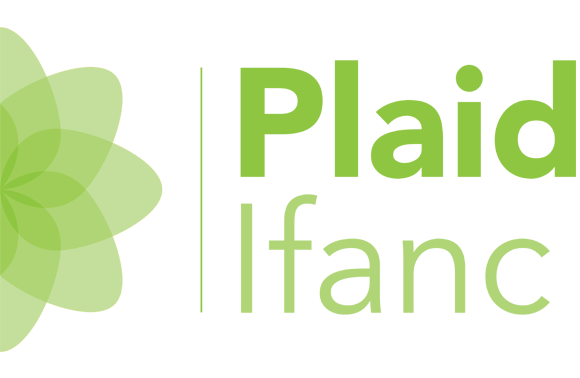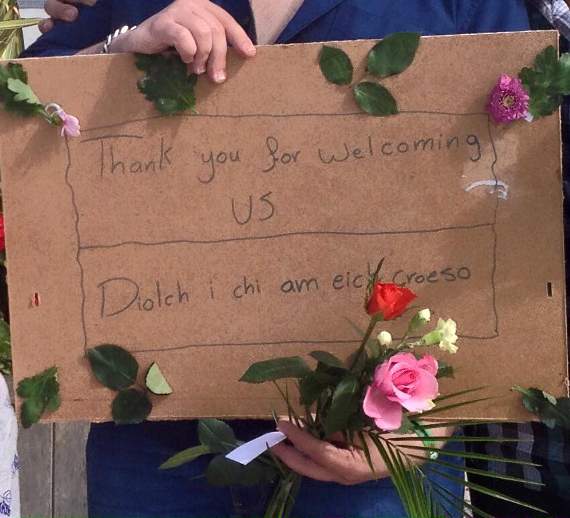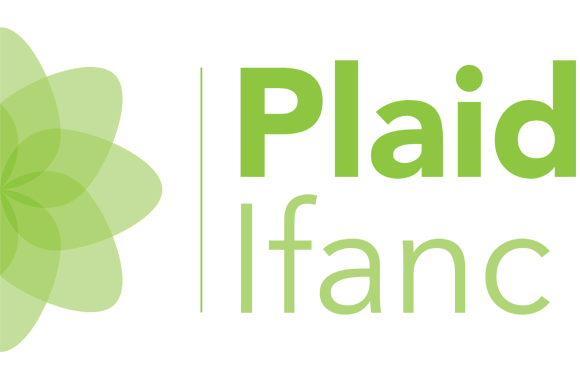Written by Christian Webb and Owain Glyn Hughes as part of the Breaking Barriers event organised by the Council of Europe, European Free Alliance Youth and the Unrepresented Nations & Peoples Organization held in Budapest, August 2016.
***
Immigration is a recurring theme in Welsh history, from the beginning of the Welsh nation to the present day. It has shaped the Welsh cultural identity and has made it a welcoming place for newcomers. Wales also has a history of accommodating displaced peoples, from Belgians fleeing German occupation in 1914 to people fleeing the Basque Country during the Civil War to refugees fleeing the conflict in Syria today. Wales has played a big part in accommodating the most recent wave of refugees, and it is expected to house 1,600 refugees by 2020. Indeed, the old Welsh phrase that there will be a ‘welcome in the hillside’ is true today as it was during other migration crises.
Wales, then, has indeed been seen as a welcoming, all-embracing country, where racist, right-wing, parties garner little support. Historically, The British National Party, Britain First and the English Defence League, all far-right parties/organisations, received very little support in Wales. This could well be linked to left-leaning political traditions in Wales, seen with the popularity of the Labour Party and the growth of Plaid Cymru.
However, on the morning of the 6th of May, many in Wales were shocked when the people of Wales elected 7 United Kingdom Independence Party (UKIP) Assembly Members to represent constituents in the Welsh Senedd. UKIP’s sole goal is to achieve just that - independence for the United Kingdom outside of Europe. Beyond that, it has little real policies. In education, defence and health they have few original policies. It has no respect for the Welsh language and has few Welsh members.[1] It’s only real attraction to members are UKIP’s policies towards immigration and the European Union (two issues which are actually completely out of the jurisdiction of the Welsh devolved government!). Despite campaigning before Brexit that leaving the EU would allow the UK to take on more non-European immigrants, this was simply a plot to throw off any xenophobic connotations linked to the party. UKIP is a racist and xenophobic party which has grown, especially in England, from a fear of immigration.
As much as we left-leaning Welsh nationalists would like to bury our heads in the sand at the result on May 6th, we have to face up to the fact that people voted for UKIP, a party which is diametrically opposite to us on social, economic, and cultural grounds. Further, we also have to harbour the crippling blow that the referendum on our membership of the European Union went in favour of Brexit. Even Wales voted to leave the union. For the first time ever, waking up on the morning after the referendum felt like waking up in a country we didn’t know. Not the country of welcoming hillsides, but of narrow insularity and bigotry.
“THREE MAIN ISSUES”
There are three main issues that Wales needs to consider going forward.
What role do we want to play in Europe (whatever shape that may be), and in the current refugee crisis? How do we assuage people’s financial insecurities, and stop the scapegoating minorities? How do we go forward to build a better, inclusive, internationalist, and truly Welcoming Wales?
The answer to the first question is difficult, as we don’t yet know the terms of the UK’s withdrawal from the EU. Indeed, some are predicting it’ll be as late as 2019 before Article 50 is triggered. But regardless of what deal is brokered, it is important for a national conversation to begin in Wales on our international role. It would be wrong for us to turn our backs on those who need us, and indeed an historical injustice to those we welcomed before. We can’t muddy our history of acceptance and embracing new people with a turn in the opposite direction.
Secondly, as we mentioned, we have to accept that people voted for UKIP, a party which scapegoats migrants and refugees as the source of all the country’s problems. But let’s also not fall into the trap of branding all people who voted UKIP as racist. Many voted as a protest - after many elections in a first past the post system which makes people feel powerless, this referendum returned power to the people. Many voted out of job insecurity and disillusionment - places like Ebbw Vale voted overwhelmingly in favour of Brexit, even though it has received millions of pounds in EU funding and has very little immigration. If you ever needed a reason for voter reform and for better media and political education, Brexit is the answer. The right wing press, as opposed to holding both the UK and Welsh government to account over improving wages and living standards, contributed to the scapegoating and resentment towards migrants and refugees. A reformed voting system which empowers people, a political education which provides a lesson in balanced viewpoints, and a reclamation of Murdoch’s airspace are all part of moving Wales forward to helping people realise that migrants are part of the nation’s solutions, not the source of its problems.
Finally, how do we build a better Wales? For us, it is in the national movement in Wales where the answers are held. Plaid Cymru has continuously sought to combat the stigma and racism which Brexit fuelled, and hold both the UK and Welsh Governments to account over their failures to improve people’s lives. As the UK’s tectonic plates as Scotland considers its own national future, the people of Wales must too consider its place in the UK, in Europe, and the World. Plaid Cymru maintains that Wales is best as an independent nation in a reformed European Union, working together with other countries to find international solutions to international problems. As Wales begins its national conversation on its future, Plaid Cymru, and Plaid Cymru Ifanc, will be at the forefront of pushing forward our vision of an inclusive, green, internationalist, feminist, and socially-democratic Wales.
We know there can be a welcome in the hillside. It is the responsibility of those who believe that to work for it, and work for the Wales we want to see.
________________________________________________________
[1] Daily Post, ‘Anger as UKIP Chief says people moving to Wales to work in the NHS should speak English’, available at: http://www.dailypost.co.uk/news/north-wales-news/anger-ukip-chief-says-people-8912037



